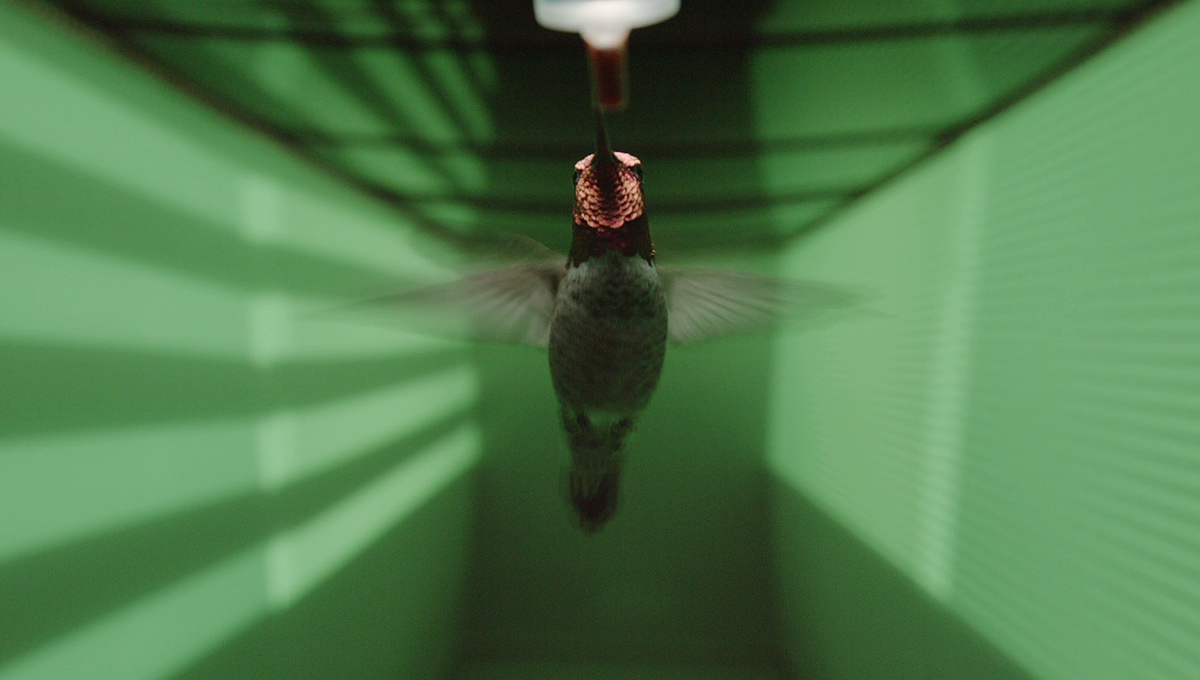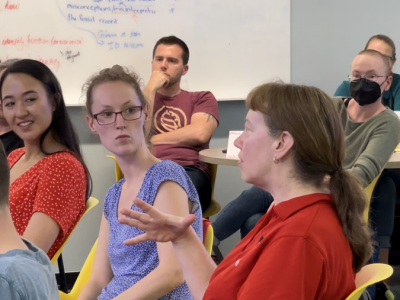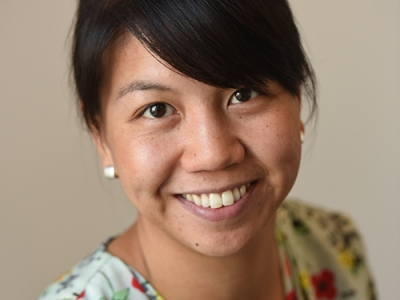Photos by Nader St-Amant
The Faculty of Science at Carleton University is making strides in providing unique experiential learning opportunities for undergraduate students. Nader St-Amant, a third-year student in BSc Biology, recently shared his transformative experience as the recipient of the 2023 Laura Thomas Summer Research Internship award, shedding light on the importance of hands-on research and the significant contributions to Roslyn Dakin’s lab.
Honouring Laura Thomas’s Legacy: A Fund for Student Support

Laura Thomas
The Laura Thomas Summer Research Internship in Biology, established in memory of the late Laura Thomas, a devoted Senior Administrator in the Department of Biology, aims to support outstanding biology students. Laura’s passion for students and her wish to assist biology students led to the creation of this fund, which provides a unique opportunity for second or third-year undergraduate students to engage in real scientific research under the mentorship of leading researchers.
“Laura was a passionate supporter of students, and she expressed a wish before she passed away to establish a fund that would assist biology students.” – Laura Thomas Award Information
Bridging the Gap for Undergraduate Scientists
The internship provides a platform for second or third-year undergraduate students to engage in scientific research. As government-funded undergraduate research internships may not cover upper-year students, this award becomes pivotal in enhancing their research experience.
“For many, the chance to connect with actual research scientists and receive face-to-face feedback is the highlight of their education and solidifies their intention to pursue careers in this field,” reads the Future Funder campaign page.
Nader St-Amant’s Experience: Laura Thomas Research Awardee
As the recipient of the Laura Thomas Summer Research Internship in 2023, Nader St-Amant, a third-year BSc Biology student, played a crucial role in setting up the Dynamic Behaviour Lab located in the Department of Biology at Carleton University and collaborated with Professor Roslyn Dakin to delve into the study of hummingbirds’ behaviour, encompassing competition, biomechanics, sociality, and evolution.
At the heart of their research was the design and assembly of a groundbreaking flight chamber, spanning approximately 4.5m by 3m. The chamber, crafted under St-Amant’s technological and engineering expertise, aimed to replicate natural hummingbird behaviours in a controlled environment.
“I felt like I was able to apply my skillset in a way that was useful and helpful to others,” remarked Nader, highlighting the high-tech nature of the setup that involved multiple lights, 3D tracking cameras, and a large aluminum frame.
This sophisticated flight chamber became the nucleus of their research efforts, providing a controlled space for studying hummingbirds’ flight patterns and behaviours.
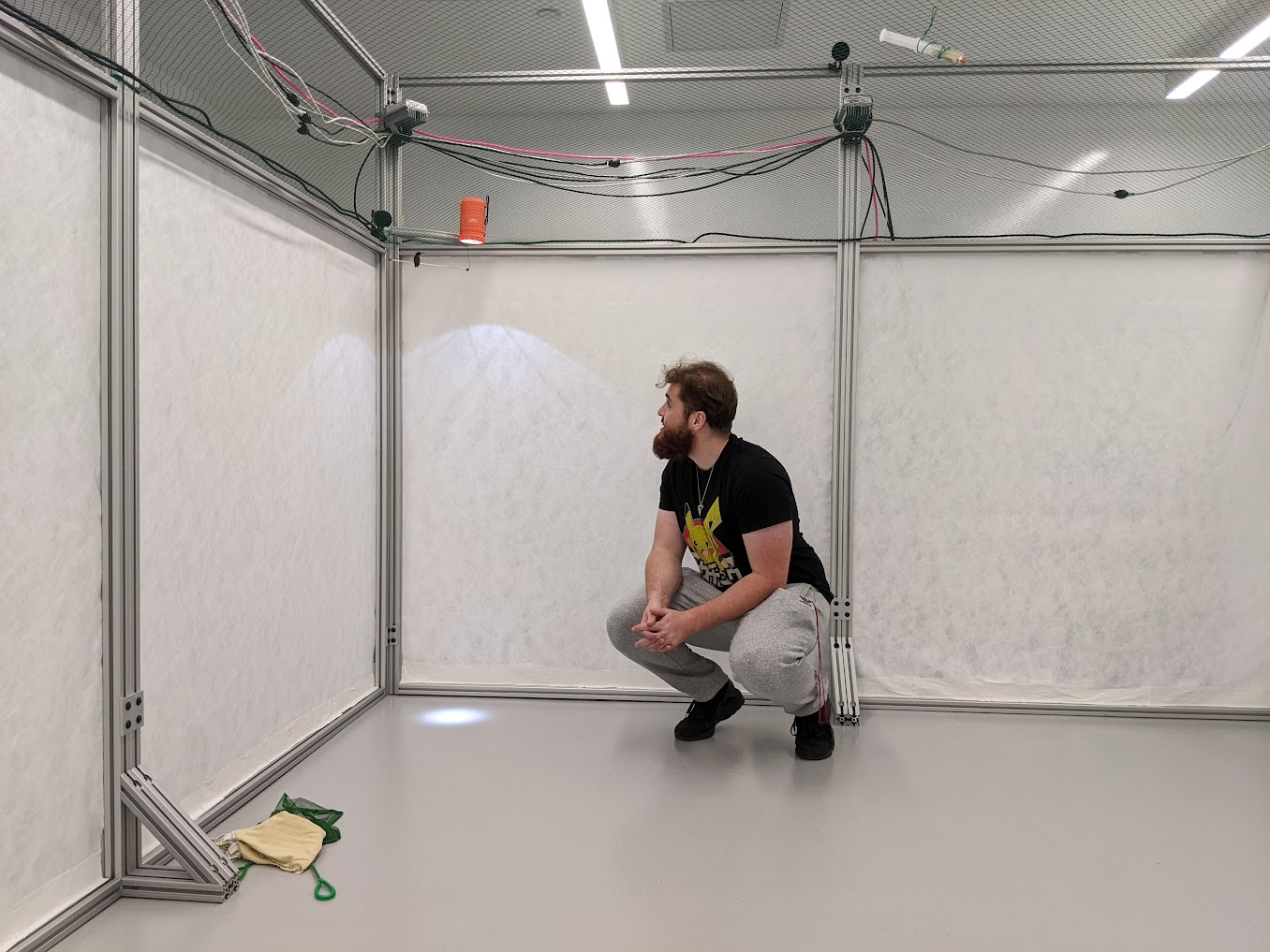
Nader St-Amant in the flight chamber
Beyond the technical aspects, St-Amant actively engaged in caring for the hummingbirds, ensuring their health and well-being for behavioural flight studies. The culmination of this immersive experience was marked by the release of a bird into the flight chamber, a tangible outcome of months of dedicated work.
Reflecting on his time in Professor Dakin’s lab, St-Amant expressed gratitude for the insights gained into animal behaviour research, the dynamics of a university lab environment, and the challenges inherent in academia.
“My time with Roslyn in her lab was very helpful to me as a student moving into my third year at Carleton,” he acknowledged, “and I want to give her a special thanks for supporting me with this opportunity.”
Looking forward, St-Amant, aspiring to pursue graduate studies and a career as a university professor, underscored the invaluable experience gained through the internship, shaping a robust foundation for his future endeavors.
Hummingbirds in Focus: Dakin’s Research Examines Flight and Evolution
Roslyn Dakin’s lab, dedicated to understanding hummingbird behaviour and evolution, has added a unique dimension to Carleton University’s research landscape. The lab’s focus on hummingbirds, with their extraordinary agility and versatility, has far-reaching implications.
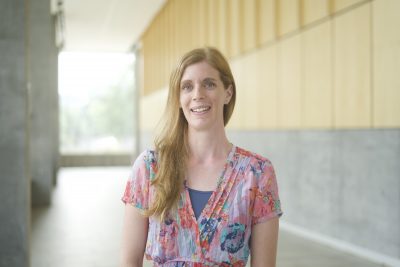
Dr. Roslyn Dakin, Professor of Biology at Carleton University
“The mechanics of animal behaviour can apply to many different industries,” says Dakin, whose work has the potential to influence industries such as drone technology and autonomous vehicles. The mechanics of animal behaviour, particularly hummingbird flight, could also offer insights for designing structures to prevent bird collisions and enhance the performance of flying devices.
Dakin’s previous research, published in Science, revealed that larger hummingbird species excel at accelerating and making tight turns, challenging conventional wisdom about bird behaviour. “We do still have questions about that. We’ve published one study on the comparison on these different hummingbird species. But that’s really only the beginning,” she says.
The ongoing work in Dakin’s lab aims to uncover more insights into how hummingbird behaviour evolved within and among different species.
To learn more, visit the Dynamic Behaviour Lab website.
